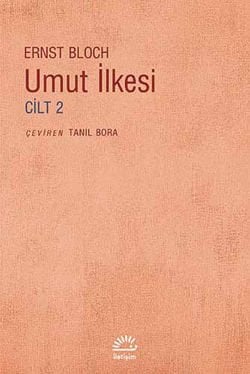
The Hope Principle Volume 2
The Principle of Hope, which presents one of the most important liberation theories of the last century, is the main work of Bloch, a philosopher who has been defined both in his connection with the Frankfurt School and within the Marxist Humanism movement, including Sartre, but has always been a "contrary". We know that Bloch's utopia, which speaks from within an atheistic religion, establishes a prophetic relationship with time/history, presents a philosophy of hope and future, and the dream of a future kingdom of freedom, is a socialist utopia.
But we also know that he differs radically from the positivism of "real socialism", which excludes utopia from the concept of the future. Between dreaming, hoping and acting
Because he finds the connection not in a deterministic will to "do" but in a liberating "will", Bloch reads history as the story of humanity's hidden dreams...
The fact that Bloch sees in the concept of utopia not only the desire for a political transformation/change but also the human capacity to create value is an indication that he defines the concept of reality not on a positivist basis, that is, on the basis of reality, but on the basis indicated by the concept of genuineness/authenticity, that is, in its relationship with the moral field. .. Authenticity is found not in the consciousness of freedom being the guide of action, but in the action itself being what makes this consciousness visible...
Reading Bloch, at a time when the category of the future has long been beyond the horizon of humanity and when humanity is trapped in a vicious present, can help us see/remember that the desire for a better life is actually the door to the future.
While reading a human story put into words in a literary, even poetic, and sometimes "mysterious" language, one of the great examples of the philosophical style of witnessing history, you will realize the greatness of overcoming the difficulty of expressing this "mysterious" language in Turkish.
Nilgün Toker
Number of Pages: 811
Year of Printing: 2012
Language: Turkish
Publisher: İletişim Publishing
First Print Year: 2012
Language Turkish
| Publisher | : | Contact Publishing |
| Number of pages | : | 811 |
| Publication Year | : | 2012 |
| ISBN | : | 9789750510762 |
| The heart | : | Turkish |


